news
Update: Rivers Crisis :”I have total confidence in our judiciary”Tinubu urges political actors to respect court rulings and restore peace in the state, Says Onanuga
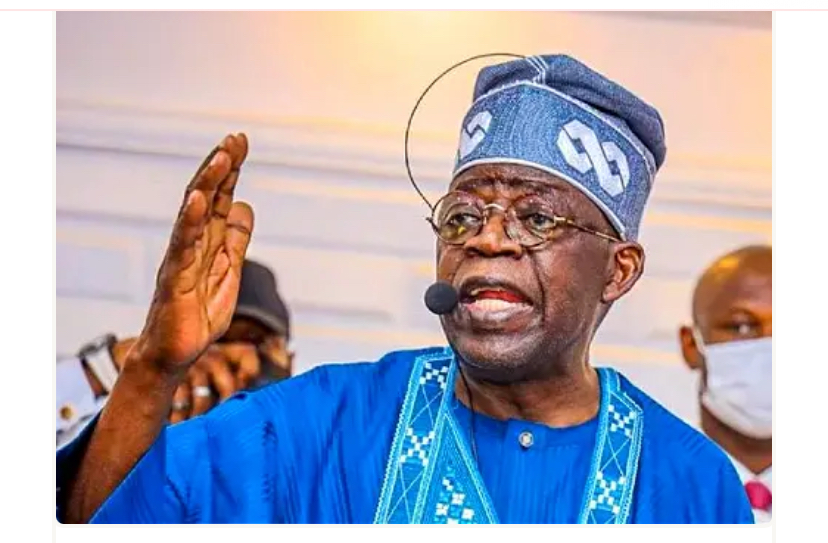
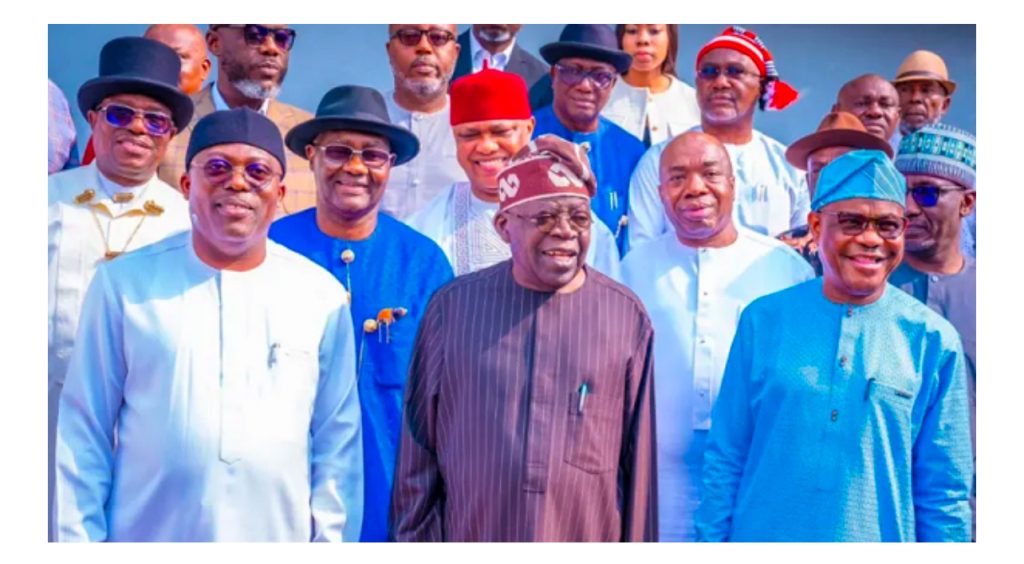 President Bola Tinubu says political stakeholders in Rivers State must respect court rulings and uphold the rule of law to restore peace in the crisis-hit state.
President Bola Tinubu says political stakeholders in Rivers State must respect court rulings and uphold the rule of law to restore peace in the crisis-hit state.
In a Tuesday statement titled “President Tinubu Calls for Adherence to the Rule of Law to Restore Peace in Rivers State”, signed by his Special Adviser on Information and Strategy, Bayo Onanuga, the President made the call during a meeting on Tuesday in Abuja with leaders of the Pan-Niger Delta Forum.
“I am here by the grace of God, appreciating your support, prayers, and concern. I cannot complain. I campaigned for this position and begged for the job.
“I must do it with all my heart, whatever it takes. I will make sure we achieve our promises and goals,” Tinubu assured the delegation.
The President emphasised that respect for judicial decisions is fundamental to maintaining democracy, stressing that all stakeholders must recognise and implement court rulings.
“This is a nation governed by the rule of law. I should not be here as President without a rule of law. I have total confidence in our judiciary.
“We have expectations. Human beings can make errors. But once the court has spoken, that is it,” he declared.
He then urged PANDEF leaders to take active steps in ensuring that the rulings of the courts are enforced.
“Please go back home and help implement the court rulings within the shortest possible time. I am putting the ball in your court.
“Help! Privately and openly intervene and counsel the governor. Pursue the path of peace and stability,” the President charged.
Political Crisis, Economic Interests
The political standoff in Rivers State has raised concerns about economic and political stability in the oil-rich Niger Delta region.
Tinubu reiterated the importance of safeguarding the region’s prosperity, likening it to “the goose that lays the golden egg.”
“Yes, Niger Delta is the goose that lays the golden egg. We must care for the goose; otherwise, we lose the golden egg.
“I got your signal and your concern, particularly on Rivers State. I have been on the issue for quite some time. I foresaw the crisis festering for too long before I intervened.
“We reached an agreement, a written agreement, and both parties signed,” the President disclosed.
He assured the delegation that his government would not allow Rivers people to suffer due to political conflicts.
“The people of Rivers State will not suffer because of democracy. We worked together on it. They will not suffer. They must be protected,” Tinubu vowed.
PANDEF Leaders Call for More Action
Responding to the President’s remarks, PANDEF leaders, including King Alfred Papapreye Diete-Spiff, Amanyanabo of Twon-Brass Kingdom, and Obong Victor Attah, former governor of Akwa Ibom State, expressed support for Tinubu’s intervention.
Attah, who also chairs PANDEF’s reconciliation committee for Rivers State, cautioned that the political turmoil poses a national security threat.
“Instability there has far-reaching consequences on the peace and stability of the nation,” he warned.
He further commended the President’s governance approach, particularly in areas of power devolution, infrastructure, environmental sustainability, and fiscal federalism, urging sustained focus on the region’s development.
The PANDEF delegation, which included former governors, legislators, ministers, traditional rulers, religious leaders, and youth and women representatives, expressed confidence in Tinubu’s leadership and called for urgent resolutions to the Rivers State crisis.
“I sincerely thank you for bringing up those issues. And for doing what you are doing for the country.
“Nigeria is too big for anyone. And greater than anyone. It is so great.
“That greatness must come from us through our determination, perseverance, and endurance to do all we can to improve it,” the president concluded.
news
Real-Time Results: Senate, House Fail to Align on INEC Powers
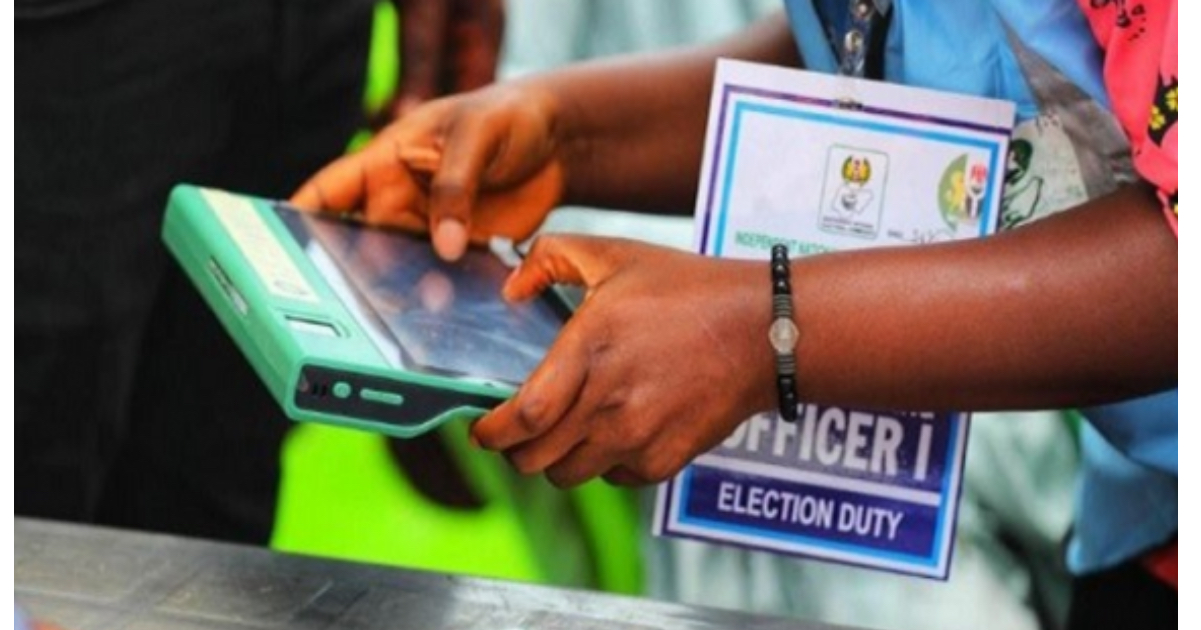
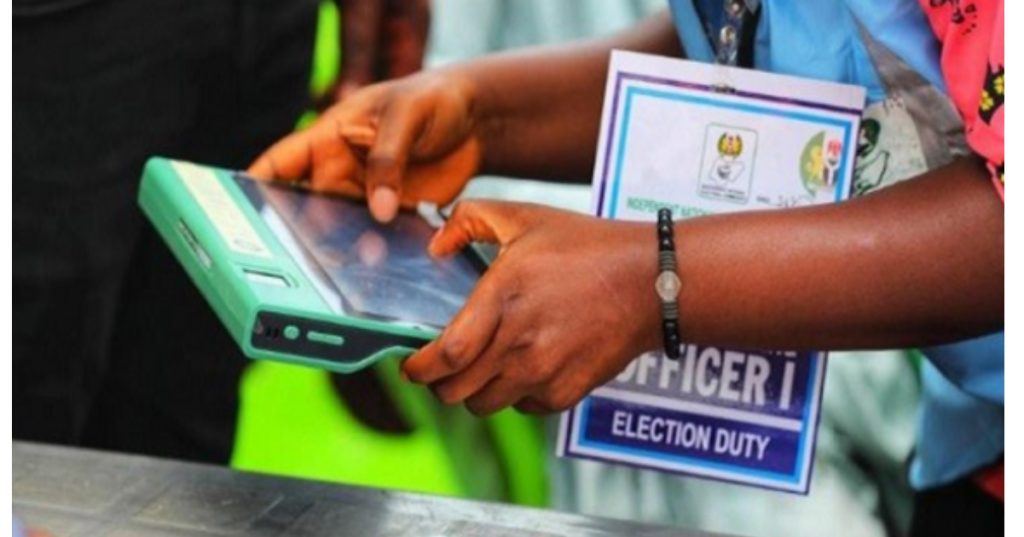
Harmonisation of versions begins •Red Chamber okays e-upload to IREV
The controversy over the passage of the Electoral Act (Amendment) Bill 2026 at the Senate was laid to rest yesterday.
The Red Chamber endorsed electronic transmission of election results, without including the contentious “real-time” provision.
This was shortly before it adopted the Votes and Proceedings of the passage of the Bill, which scaled third reading on February 4, during a rowdy session.
Because the version passed by the Senate did not include “real-time” transmission, unlike the version earlier passed by the House of Representatives, a conference committee of both chambers will harmonise the bills before final approval and eventual presentation for presidential assent.
The amendment of Section 60(3), effected yesterday and passed along with other sections read by Senate President Godswill Akpabio, states: “The Presiding Officer shall electronically transmit the results from each polling unit to the INEC Result Viewing Portal, and such transmission shall be done after the prescribed Form EC8A has been signed and stamped by the Presiding Officer and countersigned by the candidates or polling agents where available at the polling unit.
“But if the electronic transmission of the result fails as a result of communication failure, and it becomes impossible to transmit the result electronically, the signed and stamped Form EC8A by the Presiding Officer, and countersigned by the candidates or polling agents where available, shall in such a case be the primary source of collation and declaration of results.”
This differs slightly from the version passed by the House of Representatives in December, which states: “The Commission shall electronically transmit the results from each polling unit to the IREV portal in real time, and each transmission shall be done simultaneously with the physical collation of results.”
The House also passed Section 60(5), which provides: “The Presiding Officer shall transmit the results, including the number of accredited voters, to the next level of collation.”
The Electoral Act 2022, under which the 2023 elections were conducted and which is in the process of being repealed, states in part under Section 60(5): “The Presiding Officer shall transfer the result, including the total number of accredited voters and the result of the ballot, in a manner as prescribed by the Commission.”
Before senators began proceedings yesterday, protesters, for the second consecutive day, gathered in front of the National Assembly to call for the passage of real-time electronic transmission of election results.
Among the protesters was the former Governor of Rivers State and immediate past Minister of Transportation, Chibuike Amaechi.
The police prevented the protesters from gaining access to the National Assembly complex.
Inside the chamber, the Senate passed the Electoral Act Amendment Bill after a heated debate in a rowdy plenary session.
At the session presided over by Senate President Godswill Akpabio, senators modified their earlier position on real-time electronic transmission of poll results.
They consequently approved a revised clause mandating electronic transmission of results from polling units to the INEC Result Viewing Portal (IREV), with a fallback mechanism in the event of network failure.
In such instances, Form EC8A, on which results are recorded, would serve as the basis for collation.
The amendment, once harmonised with the House of Representatives’ version and signed into law by the President, is expected to legalise the use of IREV in the result transmission process, unlike what obtained during the 2023 elections.
There was palpable tension in the hallowed chamber as the initial proposal to adopt the Votes and Proceedings of the previous sitting led to heated procedural disputes, which were carefully managed by Akpabio.
Outside the National Assembly, protesters continued to agitate for the inclusion of the real-time electronic uploading clause, which had been upheld in the House of Representatives’ version of the bill.
The modification followed the approval of a motion by the Senate Chief Whip, Mohammed Tahir Monguno (Borno North), titled: “Motion for Rescission on Clause 60(3) of the Electoral Act, 2022 (Repeal and Enactment) Bill, 2026.”
Moving the motion, Monguno recalled that the bill had been passed by the Senate on February 4 but said “fresh issues have emerged in respect of Clause 60(3), which require further legislative consideration to ensure the conduct of smooth, transparent and credible elections in Nigeria.”
Invoking Orders 1(b) and 52(6) of the Senate Standing Orders, 2023 (as amended), he urged the chamber to rescind its earlier decision on the clause and recommit it to the Committee of the Whole for reconsideration and passage.
Trouble began when Monguno rose to move the motion while the Senate President was reading out the rules on Votes and Proceedings.
His action triggered confusion, with many senators questioning whether the Senate could revisit a decision already taken within the same legislative session.
Some senators argued that Order 1(b) empowered the Senate to suspend normal procedure.
Following a voice vote, the chamber agreed to allow Monguno to proceed.
Monguno said ambiguity surrounding the earlier amendment, particularly the controversy over the use of the words “transfer” and “transmission” of election results, had generated public concern and required urgent legislative clarification.
He proposed a fresh amendment stipulating that presiding officers at polling units must electronically transmit results to the INEC Result Viewing Portal (IREV) after completing and signing Form EC8A.
He added that where electronic transmission fails due to communication challenges, the signed and stamped Form EC8A would serve as the primary source for collation and declaration of results.
After the motion was seconded by Senator Abba Moro, who described the development as “a victory for democracy,” the chamber descended into disorder when the Senate President declared that the voice vote had carried the amendment.
Several senators protested and invoked Order 72, which allows any senator to challenge the opinion of the presiding officer by calling for a division.
Citing Order 72, Senator Enyinnaya Abaribe demanded individual voting, triggering loud protests, shouts of points of order, and repeated calls to order by Akpabio.
At the height of the confusion, Abaribe withdrew his request for a division, a move that further unsettled the chamber.
Akpabio ruled that Abaribe’s withdrawal stood, thereby upholding the voice vote that carried the amendment.
Following the approval of the revised clause, the Senate adopted the Votes and Proceedings of the previous sitting, bringing the stormy session to a close.
African currency exchange services
To fast-track harmonisation of the Electoral Bill with the House of Representatives’ version, the Senate expanded its conference committee from nine to 12 members to match the number of conferees from the House.
Reps committee
Electoral Reform Bill at harmonisation stage, Reps say
Reps committee summons finance, agriculture ministers, auditor general
The committee is chaired by Senator Simon Bako Lalong, with Mohammed Tahir Monguno, Adamu Aliero, Orji Uzor Kalu, Abba Moro, Asuquo Ekpenyong, Aminu Iyal Abbas, Tokunbo Abiru, Adeniyi Ayodele Adegbonmire, Jibrin Isah (Echocho), Banigo Ipalibo and Onyekachi Nwebonyi as members.
Expressing optimism that the committee would conclude its work swiftly, Akpabio said: “This is a matter of urgency. If you are able to conclude within the next few days or one week, the President should be able to sign this amended Electoral Bill within this month.”
Former Vice President Atiku Abubakar, who spoke in Minna, the capital of Niger State, said electronic transmission of results would restore sanity and avert chaos.
However, he expressed doubts about the ability of the proposed law to guarantee real-time transmission.
Atiku said: “This is below the expectations of Nigerians. During the last elections, Nigerians were expecting real-time electronic transmission of election results at various levels of the election, but what we got was a mixture of electronic and manual uploading, which caused more confusion and chaos.
“It will be best if we have a single-tier electronic transmission, which is real-time electronic transmission, which is the preference of all Nigerians.”
The African Democratic Congress (ADC) stalwart urged opposition political parties to reject the Senate’s decision to allow manual uploading of election results.
He said: “We need all opposition political parties to pursue this issue. We should not allow it to rest the way they wanted it to rest today at the Senate.”
The African Democratic Party (ADP) warned of likely public distrust of the electoral process if electronic transmission is not upheld.
The party’s National Chairman, Yabagi Sani, said in a statement that “while the Senate’s reversal of its earlier rejection of electronic transmission reflects public pressure and democratic expectation, the ADP notes that a reform that does not guarantee mandatory, real-time transmission cannot restore electoral credibility.”
The ADC National Publicity Secretary, Bolaji Abdullahi, described the Senate’s modified position as a victory for the resilience, vigilance and rising political consciousness of Nigerians.
He said in a statement: “It demonstrates, in the clearest possible terms, that when citizens act with unity, clarity of purpose and resolve, they can indeed move mountains.”
The ADC credited Nigerians’ coordinated civic actions, noting: “From the street protests to the digital campaigns, the Nigerian people have once again shown that sovereignty truly belongs to them.”
Hailing the protesters, Abdullahi added: “We salute the courage and tenacity of Nigerians. We commend every citizen who raised a voice, whether online or offline, to resist legislative mischief that threatened to undermine our electoral integrity.”
A former President of the Nigerian Bar Association (NBA), Dr Olisa Agbakoba (SAN), said the adoption of real-time upload of results would engender public trust and close electoral loopholes.
He said the regulatory process must be adequately backed by law.
Agbakoba noted in a statement that the 2023 election exposed a critical gap in the electoral legal framework, recalling that despite INEC’s deployment of the IREV portal for electronic transmission of results, the Supreme Court ruled that the innovation lacked legal force.
The human rights lawyer explained that the IREV portal currently serves only for public viewing and is not admissible as evidence of results in election petitions.
He said: “The message was unmistakable: without explicit statutory provision, electronic transmission remains optional and legally inconsequential, no matter how transparent or efficient it may be.
“This legal gap creates an insurmountable evidentiary burden in election petitions.”
The Tanimu Turaki-led faction of the PDP rejected the Senate’s position on transmission of election results, describing the senators as “clever by half.”
The party’s National Publicity Secretary, Comrade Ini Ememobong, said in a statement that the addendum introduced by the Senate to allow manual transmission was a backdoor attempt to achieve the same objective as the earlier rejection.
The statement reads in part: “We have taken note of the outcome of the Senate’s reconsideration of its earlier position on the real-time electronic transmission of election results, wherein an addendum was introduced to permit manual transmission where technology is said to fail.
“We hold the firm view that this addendum is nothing more than a backdoor attempt to achieve the same objective as the earlier outright rejection, while pretending to align with the wishes of the Nigerian people.
“Manual transmission is already sufficiently provided for under the Electoral Act. The current agitation for electronic transmission is aimed at introducing a second-layer authentication mechanism that prevents the alteration of results en route to collation centres, a malpractice that has historically been the bane of Nigeria’s electoral process.
“Furthermore, it is inconceivable that the same BVAS technology, which successfully undertakes accreditation throughout an election, would suddenly become unreliable for the transmission of results and accreditation data arising from that same exercise.
“This caveat is a clear indication of the humongous fear being harboured by senators opposed to electronic transmission, particularly Senate President Godswill Akpabio, whom we reasonably suspect remains haunted by the ghost of his 2019 election loss, occasioned by the deployment of technology to curb over-voting.
“They must be reminded that Nigeria is bigger than their narrow personal and political interests.
“We therefore urge members of the Conference Committee to adopt the version of the bill passed by the House of Representatives as the harmonised position, if indeed they are committed to delivering credible elections in 2027.
“They must rise above the instincts of politicians fixated on the next election and instead focus on the sustenance of democracy and the protection of future generations.
“Should this democracy fail, the names of Senator Akpabio and all senators who voted against electronic transmission will undoubtedly occupy a conspicuous chapter in the book of infamy.
“We also call on Nigerians to remain resolute in their demand for real-time electronic transmission of election results. This is no time for excuses. This hard-won democracy is far too valuable to be left in the hands of politicians alone.”
news
New Telegraph Award, Dinner Night: Ooni Is Royal Father Of The Day, Osoba Event Chair


The Ooni of Ife, His Imperial Majesty, Oba Adeyeye Enitan Ogunwusi, Ojaja II, has accepted to be the Royal Father of the Day at the New Telegraph Awards Night/ Dinner holding at the Grand Ballroom of the Oriental Hotels, Lagos this Friday.
That is as veteran Elder journalist and former Governor of Ogun State, Aremo Olusegun Osoba, has also accepted to be the Chairman of the event.
The New Telegraph Awards Night/Dinner is a high octane event, where governors, captains of industry, banking and financial institutions and executives as well as public, private sector players and sports personalities would be honoured.
Nine state governors from across the country have confirmed their attendance at the event, with other awardees expressing delight and anticipation towards the event.
In a letter conveying his choice as the Royal Father of the Day, the Management of Daily Telegraph Publishing Company, publishers of the New Telegraph, Saturday and Sunday Telegraph titles informed the paramount ruler and the number one Yoruba king that his choice was borne out of his dedication to excellence and public good in his 10-year reign as the Paramount Ruler of the Yoruba Nation.
“Your Highness, it is important to let you know that you were chosen because of your position as not only the Paramount Ruler of one of the largest and homogenous nations in Nigeria, but also because of your dedication to service, excellence, reward and honesty in your over 10-year reign on the throne of your ancestors.
The letter was delivered to him personally by the Managing Director/Editor-in-Chief of the newspaper, Mr Ayodele Aminu. Similarly, Aremo Osoba, a former Editor-in-Chief of the Daily Times and Grand Patron of the Nigerian Guild of Editors, was chosen because of his close association with his profession, several years after serving as governor.
Osoba is ever present in the activities of journalists and editors, despite being a leading political figure in the country.
According to Aminu, Osoba reflects the dream of not only journalists but every profession because he did not forget his roots and easily identifies with his colleagues, no matter the gap in age and experience.
news
Alleged ₦8.7bn Fraud: Malami, Others Oppose EFCC’s Property Forfeiture Move
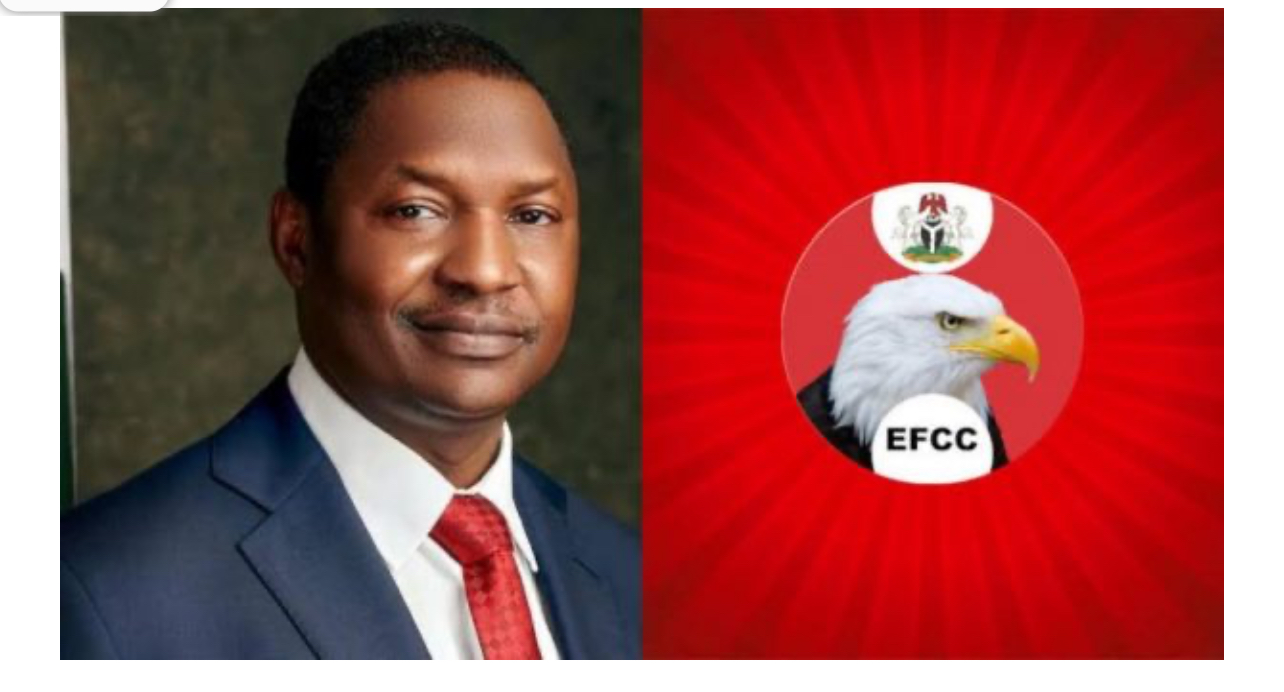
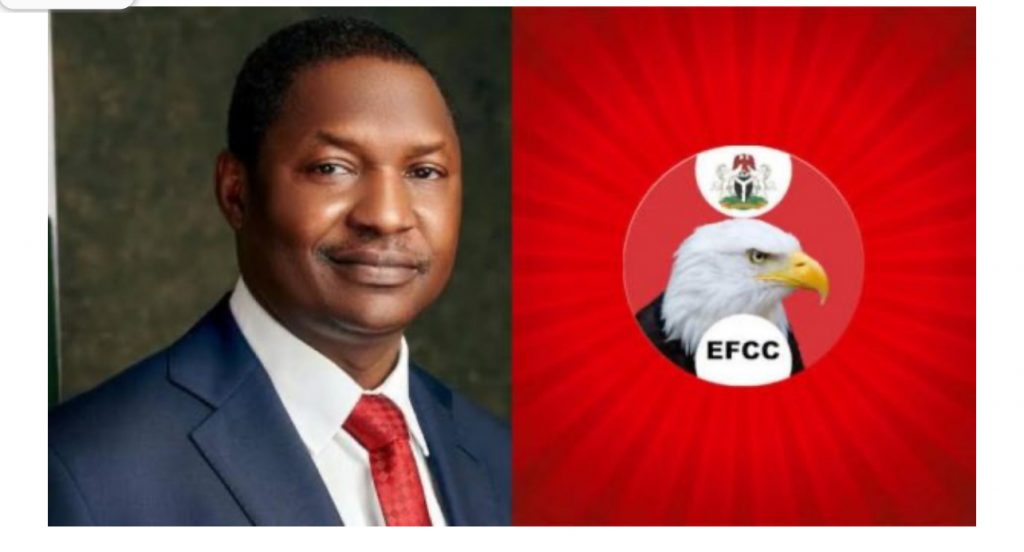
More applicants have approached the Federal High Court in Abuja over some properties linked to former Attorney-General of the Federation (AGF) and Minister of Justice, Abubakar Malami (SAN).
The applicants prayed for the setting aside of the interim forfeiture order made against some of the property linked to the former minister.
They argued that the Economic and Financial Crimes Commission (EFCC) failed to establish any nexus between their property and any unlawful activity, contrary to Section 135 of the Evidence Act and the Advance Fee Fraud.
In their separate motions on notice filed by their lawyers, the applicants – Alhaji Muktaka Usman Junju, and Rayhaan Bustan and Agro Allied Limited – urged the court to vacate and discharge the order made on January 6 by Justice Emeka Nwite.
Junju, a businessman, through his lawyer, Kalu Kalu Agu, prayed the court to set aside the order made on property listed as Number 40 by the EFCC.
Rayhaan Limited, an agricultural food production company, through its lawyer, Joseph Daudu (SAN), also asked the court to remove property listed as numbers one, 28, 29, 30, 31, and 32 from the list of property brought by the anti-graft agency.
The duo, in their applications, also prayed the court for an order directing the immediate restoration of their possession, control, and enjoyment of the listed property from the 57 property sought to be forfeited to the Federal Government.
The News Agency of Nigeria (NAN) recalls that the property listed as number 40 in the EFCC’s schedule is Al-Afiya Energy Tanker Garage, opposite Rayhaan University Health Centre, along Sani Abacha Bypass Road, Birnin-Kebbi, valued at N2,450,000,000.00.
Property Number One is a luxury duplex at Amazon Street, Plot Number 3011 within the Cadastral Zone, A06 Maitama; File Number: An enhancement 11352, which was purchased in December 2022 at N500,000,000.00 (value after enhancement at N5,950,000,000).
Property numbers 28, 29, 30, 31 and 32, which are under Rayhaan Agro Allied Factory in Kebbi, include Factory Buildings, Factory Machines and Plants Units, Factory Mosque, Rayhaan Mill Staff Quarters and Rayhaan Bustan Building, valued at N4,200,000,000.00; N10,500,000, 000.00; N2,450,000,000.00; N1, 487,500,000.00; and N3,150,000, 000.00 respectively.
NAN reports that Justice Nwite had, on Jan. 6, ordered the interim forfeiture of the 57 property suspected to be proceeds of unlawful activities linked to Mr. Malami.
The multi-billion naira landed properties are located in Abuja, Kebbi, Kano and Kaduna States.
The judge granted the order following an ex parte motion moved by the EFCC’s lawyer, Ekele Iheanacho, SAN, to the effect.
Malami was the AGF and Minister of Justice in the Muhammadu Buhari administration.
Nwite, in the ruling, also directed the publication of the interim order of forfeiture in any national daily, inviting any person(s) or body (ies) who might have an interest in the property to show cause, within 14 days of the publication, why a final order of forfeiture to the Federal Government of Nigeria should not be made.
Although the case was formerly before Justice Nwite, the case file had been transferred by the chief judge to Justice Obiora Egwuatu of a sister court for adjudication.
Also in his motion on notice dated January 26, but filed January 28 by Agu, Junju stated that the property listed as Number 40 belonged to him.
According to Junju, the root of title and acquisition history are described in the schedule attached to the affidavit in support of the motion, as Exhibit A.
Nigerian Property Investment
His lawyer argued that the commission had not established that the property was proceeds of an unlawful purpose, which, he argued, robbed the court of jurisdiction.
Agu submitted that the EFCC had failed to comply with the constitutional and statutory dictates of Section 44(2) (b) of the 1999 Constitution (as amended) and Section 17(1) of the Advance Fee Fraud and Other Fraud Related Offences Act 2006, requiring it to disclose specific particulars of the alleged unlawful act committed and the applicable laws.
Besides, he said the court did not conduct a global review of the entire documents and exhibits attached to the commission’s motion ex parte filed on January 6 and granted the same date, “which constitutes an abdication of its judicial duty to properly consider the application to ensure there is a reasonable suspicion that the property was linked to unlawful activities.”
The lawyer argued that Junju duly purchased the land in question “from an original allottee, by name Alhaji Usman Na’Allah Bunza and has no link with Malami, SAN or any Al-Afiya Garage.”
“Respondent (EFCC) is guilty of fraud and non-disclosure of material facts regarding ownership and acquisition of property of the applicant (Junju) forfeited in the interim by the orders of this honourable court.
“The interim forfeiture was procured in violation of Section 5 of the Assets Tracing, Recovery and Management Regulations 2019, having not been initiated through the Office of the Attorney-General of the Federation,” Agu said.
Also in his argument, Daudu, in their motion dated Jan. 19 but filed Jan. 23, said Rayhaan Ltd, by law, is a corporate person and can acquire and own property anywhere in Nigeria.
He described Rayhaan as “a limited liability company, duly registered with the Corporate Affairs Commission (CAC) pursuant to the Companies and Allied Matters Act (CAMA).”
The senior lawyer said properties listed as Nos. 1, 28, 29, 30, 31 and 32 all belonged to the company.
“The applicant’s property Number One was acquired with payments made from Excel Merchants Ltd in favour of the applicant,” he said.
Daudu also said the property numbers 28, 29, 30, 31, and 32 were acquired by the company from banking facilities granted by NEXIM BANK, the Bank of Industry and Access Bank Plc.
“The NEXIM Bank loan has now been called in by reason of the interim order of forfeiture of January 6, 2026.
“Zenith Bank Plc, which had guaranteed the loan, has revoked the guarantee by reason of the interim order of forfeiture of January 6, 2026, and has commenced daily interest charges on the outstanding sum,” Daudu said.
The lawyer argued that the EFCC did not establish that the assets listed as numbers one, 28, 29, 30, 31, and 32, in the interim forfeiture order were proceeds of some unlawful activities, as required under Section 17 (1) of the Advance Fee Fraud Act 2006, and that no predicate offence was linked to the acquisition of the property.
He also argued that the court was not invoked and prompted to conduct a global review of the entire documents and exhibits attached to the motion ex parte, “which constitutes an abdication of its judicial duty to properly consider the application to ensure that there is a reasonable suspicion that they were linked to unlawful action.”
Daudu aligned with Agu that the EFCC “is guilty of fraud and non-disclosure of material facts regarding ownership and acquisition of properties of the applicant forfeited by the orders” of the court.
He submitted that the proceedings of January 6 amounted to unlawful deprivation of property, denial of fair hearing and abuse of court process, urging the court to set the same aside.
Malami had, equally, filed a motion, praying the court to vacate the interim order of forfeiture against his property.
Also, Justice Egwuatu has fixed February 12 for the hearing of the matter.
-

 news5 years ago
news5 years agoUPDATE: #ENDSARS: CCTV footage of Lekki shootings intact – Says Sanwo – Olu
-

 lifestyle6 years ago
lifestyle6 years agoFormer Miss World: Mixed reactions trail Agbani Darego’s looks
-

 health5 years ago
health5 years agoChairman Agege LG, Ganiyu Egunjobi Receives Covid-19 Vaccines
-

 lifestyle4 years ago
lifestyle4 years agoObateru: Celebrating a Quintessential PR Man at 60
-

 health6 years ago
health6 years agoUPDATE : Nigeria Records 790 new cases of COVID-19
-

 health6 years ago
health6 years agoBREAKING: Nigeria confirms 663 new cases of COVID-19
-

 entertainment1 year ago
entertainment1 year agoAshny Set for Valentine Special and new Album ‘ Femme Fatale’
-

 news9 months ago
news9 months agoBREAKING: Tinubu swears in new NNPCL Board


